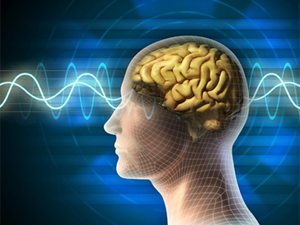



Date:01/05/18
 Employees' brain waves are reportedly being monitored in factories, state-owned enterprises, and the military across China.
Employees' brain waves are reportedly being monitored in factories, state-owned enterprises, and the military across China.
The technology works by placing wireless sensors in employees' caps or hats which, combined with artificial intelligence algorithms, spot incidents of workplace rage, anxiety, or sadness.
Employers use this "emotional surveillance technology" by then tweaking workflows, including employee placement and breaks, to increase productivity and profits.
At State Grid Zhejiang Electric Power in the southeast city of Hangzhou, company profits jumped by $315 million since the technology was introduced in 2014, an official told the South China Morning Post.
Cheng Jingzhou, the official who oversees the company's program, said "there is no doubt about its effect," and brain data helps the 40,000-strong firm work to higher standards.
According to the SCMP, more than a dozen businesses and China's military have used a different programme developed by the government-funded brain surveillance project Neuro Cap, based out of Ningbo University.
"They thought we could read their mind. This caused some discomfort and resistance in the beginning," Jin Jia, a professor of brain science at Ningbo University told the Post.
"After a while they got used to the device... They wore it all day at work."
Jin also said that employees' brainwaves can be enough for managers to send them home.
"When the system issues a warning, the manager asks the worker to take a day off or move to a less critical post. Some jobs require high concentration. There is no room for a mistake."
Another type of sensor, built by technology company Deayea, is reportedly used in the caps of train drivers on the high-speed rail line between Beijing and Shanghai. The sensor can even trigger an alarm if a driver falls asleep.
Widespread use of emotion monitoring may mark a new stage in China's surveillance state, which has largely been focused on facial recognition and increasing internet censorship.
It's unknown if all employees subjected to the technology are aware they are being monitored, but even if they were China's privacy laws would be unlikely to help.
The notoriously lax privacy laws, and the country's large sample population, have helped China leap ahead with its artificial intelligence research.
According to a report by CB Insights, China applied for five times as many AI patents as the US in 2017.
China is monitoring employees’ brain waves and emotions
 Employees' brain waves are reportedly being monitored in factories, state-owned enterprises, and the military across China.
Employees' brain waves are reportedly being monitored in factories, state-owned enterprises, and the military across China.The technology works by placing wireless sensors in employees' caps or hats which, combined with artificial intelligence algorithms, spot incidents of workplace rage, anxiety, or sadness.
Employers use this "emotional surveillance technology" by then tweaking workflows, including employee placement and breaks, to increase productivity and profits.
At State Grid Zhejiang Electric Power in the southeast city of Hangzhou, company profits jumped by $315 million since the technology was introduced in 2014, an official told the South China Morning Post.
Cheng Jingzhou, the official who oversees the company's program, said "there is no doubt about its effect," and brain data helps the 40,000-strong firm work to higher standards.
According to the SCMP, more than a dozen businesses and China's military have used a different programme developed by the government-funded brain surveillance project Neuro Cap, based out of Ningbo University.
"They thought we could read their mind. This caused some discomfort and resistance in the beginning," Jin Jia, a professor of brain science at Ningbo University told the Post.
"After a while they got used to the device... They wore it all day at work."
Jin also said that employees' brainwaves can be enough for managers to send them home.
"When the system issues a warning, the manager asks the worker to take a day off or move to a less critical post. Some jobs require high concentration. There is no room for a mistake."
Another type of sensor, built by technology company Deayea, is reportedly used in the caps of train drivers on the high-speed rail line between Beijing and Shanghai. The sensor can even trigger an alarm if a driver falls asleep.
Widespread use of emotion monitoring may mark a new stage in China's surveillance state, which has largely been focused on facial recognition and increasing internet censorship.
It's unknown if all employees subjected to the technology are aware they are being monitored, but even if they were China's privacy laws would be unlikely to help.
The notoriously lax privacy laws, and the country's large sample population, have helped China leap ahead with its artificial intelligence research.
According to a report by CB Insights, China applied for five times as many AI patents as the US in 2017.
Views: 397
©ictnews.az. All rights reserved.Similar news
- Azerbaijani project to monitor disease via mobile phones
- Innovative educational system to be improved under presidential decree
- NTRC prolongs license of two TV and radio organizations for 6 years
- Azerbaijan establishes e-registry for medicines
- Azerbaijani museum introduces e-guide
- Nar Mobile opens “Nar Dunyasi” sales and service center in Siyazan city
- International conference on custom electronic services held in Baku
- OIC secretary general to attend COMSTECH meeting in Baku
- Azerbaijan develops earthquake warning system
- New law to regulate transition to digital broadcasting in Azerbaijan
- Azerbaijani State Social Protection Fund introduces electronic digital signature
- Intellectual traffic management system in Baku to be commissioned in December
- Tax Ministry of Azerbaijan started receiving video-addresses
- World Bank recommends Azerbaijan to speed up e-service introduction in real estate
- Azerbaijan to shift to electronic registration of real estate





















